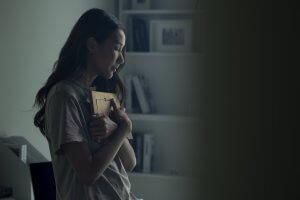Maternity Restrictions Increasing Anxiety for Expectant Mums’

Contact
Table of Contents
We may be allowed to visit the pub with friends, eat out again at our favourite restaurants and even return to the office on an overcrowded train, but many women continue to face the postcode lottery of strict restrictions on visitors throughout their pregnancy and birth.
Birth partners are an important part of a woman’s pregnancy, labour and birth experience, and for many women form an integral part of their birth plan. The birth plan sets out in advance a woman’s preference for labour and can include choice of birth setting and methods of pain relief. This is something a woman will discuss and plan with their midwife at the time of their initial antenatal booking appointment.
Since the start of the Covid-19 pandemic one birth partner has been permitted to stay with a woman throughout the labour and birth. However, many NHS Trusts rules’ have meant that some women are experiencing the early phase of labour alone, which in some cases can span more than 24 hours. They are also grappling the first hours and days of motherhood without the support of their partner.
New research from baby club Aptaclub indicates that around half of new mums during the Covid-19 lockdown have experienced some form of anxiety, loneliness or felt scared due to being alone during key pregnancy moments such as scans, appointments, birth or hospital stays.
Even without the presence of a global pandemic, approximately one in five women experience a mental health problem during pregnancy or in the year following the birth. Many partners also experience mental health problems during this time, with some studies suggesting that 1 in 10 new father’s experience a mental health condition after their partner has given birth.
Being unable to attend physical antenatal and NCT classes, meet up with other expectant parents as well as not being able to both attend all the appointments and scans during pregnancy can be a source of anxiety for many soon-to-be parents. It is no surprise that during the pandemic the number of women experiencing symptoms of post-natal depression has tripled according to researchers at the University of Alberta in Canada.
The situation does, thankfully, appear to be improving for expectant mothers. On 8 September 2020, the NHS issued guidance on the re-introduction of visitors on maternity units and hospital wards However, this is subject to the discretion of different trusts and varies between areas nationwide. Having your partner present throughout the entirety of your labour and to support you and your baby following the birth depends upon the NHS Trust covering the unit or hospital you give birth in.
For example, the Royal Free Hospital in Hampstead, London are lifting restrictions from 21 September 2020 this means that your birth partner will be able to stay with you between 9am and 7pm should you be undergoing an induction. However, partners are still not permitted to attend ultrasound scans.
Other trusts are allowing expectant mothers to bring one other person to their ultrasound scans but have different rules and restrictions in place for inductions and the hours and days following the birth.
If you are currently pregnant the best advice is to check directly with your NHS Trust regarding rules on visitors and birthing partners. Valuable advice on labour and birth during the coronavirus pandemic can be found from the Royal College of Midwives and the Royal College of Obstetricians and Gynaecologists (RCOG).
Eloise Mears, is a Birth Injury Medical Negligence Solicitor at Osbornes Law
Unfortunately, there are occasions when the medical treatment you receive is not what’s acceptable. In these circumstances, the medical negligence team at Osbornes can help and advice you. For a confidential chat with a member of our medical negligence team, call 0207 584 8811 or complete an online enquiry form.
Share this article

